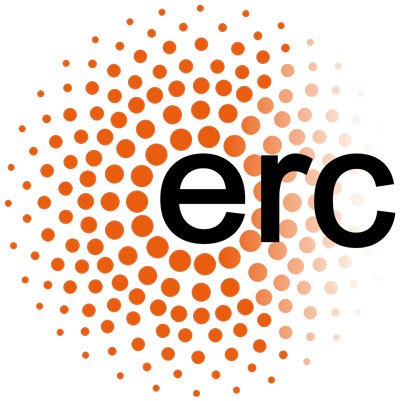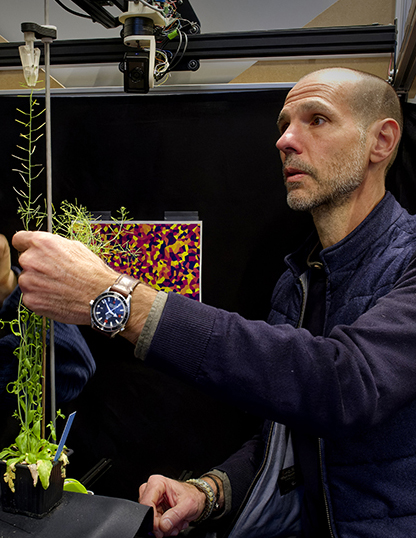
ERC Advanced Grant 2022
Principal Investigator: Teva Vernoux, CNRS Research Director at RDP laboratory
Project hosted by the ENS de Lyon - coordinated by the CNRS
Research: How plant cells set the tempo of rhythmic shoot construction
Field: Biology
Project
TEMPO - How plant cells set the tempo of rhythmic shoot construction
Time is central to the development of the body plan of multicellular organisms. One prominent developmental timing mechanism is the rhythmic, iterative addition of tissues and organs. While the tempo of rhythmic construction is often set by developmental clocks, plants use a unique mechanism in the shoot, whereby rhythmic organogenesis emerges from dynamic changes in the distribution of the hormone auxin. High auxin levels trigger organogenesis but, contrary to a long-standing theory, the period of shoot organ production - or plastochron - cannot simply be encoded in periodic auxin oscillations, due to noise in these oscillations. Revealing how the tempo of shoot construction is established thus remains a critical knowledge gap in plant biology.
In TEMPO, we hypothesize that cells record and use the history of their auxin exposure, in order to robustly set the timing of organogenesis and the plastochron at the tissue scale despite noisy auxin temporal information. This fundamental change in the way we understand the relationship between auxin and the plastochron stems from preliminary data from my team suggesting histone acetylation as an epigenetic-tracking mechanism, which allows auxin temporal information to be recorded and utilized for transcriptional control.
Uncovering how auxin temporal information establishes the tempo of shoot construction requires multiscale, multidisciplinary approaches. We will combine cutting-edge live-imaging, synthetic biology and computational modeling with innovative optogenetics and single-cell genomics to both ascertain and perturb auxin temporal information and histone acetylation at high resolution, while assessing the effect on cellular transcriptional states and the timing of organ production. Beyond testing whether epigenetic tracking of auxin temporal information sets a robust plastochron across scales, we will reengineer the plastochron to demonstrate that the tempo of shoot construction can be predictively manipulated.
Duration: 5 years
ERC Advanced Grants
ERC Advanced Grants are designed to support excellent Principal Investigators at the career stage at which they are already established research leaders with a recognised track record of research achievements. Principal Investigators must demonstrate the ground-breaking nature, ambition and feasibility of their scientific proposal.
Researcher

Teva Vernoux
CNRS Reasearch Director - Plant Reproduction and Development Laboratory, Hormonal Signalling and Development team






